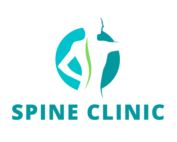Physical Health Benefits
Morning exercise offers a myriad of physical health advantages that can significantly enhance an individual’s overall well-being. One of the most notable benefits is the improvement of cardiovascular health. Engaging in physical activity early in the day can help lower blood pressure, improve circulation, and reduce the risk of heart disease. A study published in the Journal of the American Heart Association found that individuals who exercised in the morning had better heart health markers compared to those who exercised later in the day.
Another critical benefit of morning exercise is its role in better weight management. Exercising in the morning can kickstart your metabolism, helping you burn more calories throughout the day. This phenomenon, known as the “afterburn effect,” occurs because your body continues to burn calories at a higher rate post-exercise. Additionally, morning workouts can suppress appetite, making it easier to control food intake and avoid overeating.
Increased energy levels are another significant advantage of morning exercise. Physical activity stimulates the production of endorphins, which can boost mood and energy levels, setting a positive tone for the rest of the day. A study published in the British Journal of Sports Medicine highlighted that participants who engaged in morning exercise reported higher energy levels and improved mood compared to those who did not.
Morning exercise also contributes to muscle growth and strength. When you exercise in the morning, your body releases more testosterone and growth hormone, both of which are crucial for muscle development. Consistent morning workouts can lead to increased muscle mass and enhanced physical strength over time.
For beginners looking to incorporate morning workouts into their routine, starting with simple exercises such as brisk walking, jogging, or bodyweight exercises can be effective. Gradually increasing the intensity and duration of workouts can help build stamina and make morning exercise a sustainable habit.
Mental and Emotional Benefits
Morning exercise offers an array of mental and emotional advantages that extend beyond physical health. Engaging in physical activity early in the day has been shown to significantly reduce stress levels. This reduction is primarily due to the release of endorphins, often referred to as “feel-good” hormones, which act as natural stress relievers. These endorphins interact with receptors in the brain, diminishing the perception of pain and triggering a positive feeling akin to that of morphine.
Moreover, morning exercise has a profound impact on mood enhancement. The release of neurotransmitters such as serotonin and dopamine during physical activity plays a crucial role in promoting a state of well-being and happiness. These neurotransmitters are essential in regulating mood, and their increased levels can help alleviate symptoms of anxiety and depression. Personal accounts often highlight how individuals feel more optimistic and energized throughout the day after a morning workout.
In terms of cognitive function, morning exercise can enhance memory and concentration. Physical activity increases blood flow to the brain, which in turn nourishes brain cells and promotes neural connectivity. Studies have indicated that individuals who exercise in the morning tend to have better focus and improved problem-solving skills compared to those who do not. This cognitive boost can be particularly beneficial for students and professionals who require sharp mental acuity.
For instance, Jane Doe, a marketing executive, shared how her morning runs transformed her daily routine. “I used to struggle with morning meetings, feeling sluggish and unmotivated. Ever since I started running in the mornings, I find myself more alert and my mood has significantly improved,” she remarked.
To sustain the habit of morning exercise, it is essential to establish a routine and set realistic goals. Laying out workout clothes the night before, setting a consistent wake-up time, and gradually increasing exercise intensity can make the transition smoother. Additionally, finding a workout buddy or joining a morning exercise group can provide the necessary motivation and accountability to keep going.
